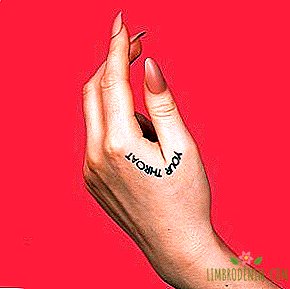Neutral band: Can political correctness overflow?

Dmitry Kurkin
"Are they completely insane?" This question arises from commentators regularly when it comes to "excesses" in political correctness.. For example, when Lena Dunham speaks in support of college students demanding that they prohibit selling sushi in the canteen, as an insulting appropriation of Japanese gastronomic culture. Or when Gigi Hadid, who fell on the cover of Italian Vogue, is accused of racism because of the abundance of bronzer on the skin.
This question is, of course, in a softer formulation, “Is political correctness not too far gone?” - In recent years, it has become a constant topic for columnists of those publications for which political correctness is not an empty sound and not an object for ridicule (as for imageboarding regulars who have turned the abbreviation SJW into a bugaboo and swear word). So gone or not?
There is actually no answer to this question, and the reason for this is the very nature of political correctness — an extremely inconvenient thing for both its desperate supporters and those who also vehemently reject it. It deals with unreflected social treaties and loose rights that are not only dubious in their own right, but also directly contradict each other. The first is the right to be offended and see a sedition in what went unnoticed yesterday and was familiar. The second is the right to ignore someone else’s insult with full awareness of the possible consequences. Actually, this is exactly how a reputation institution ideally works, with political correctness closely related: it has no legislative force and cannot exist (otherwise it will really turn into mob justice and the “Lynch Court” with which critics compare it). But this does not mean that he has no power at all.
Political correctness is a kind of boundary between what is considered acceptable and what is absolutely unacceptable. But it makes sense and value if and only if it is mobile and leaves a neutral strip - or, if you will, a gray zone - for arguments and disputes.
The case of Hadid and the Italian Vogue is from this border zone. The abundance of bronzer and the demand for a very dark tan for modern Italy is a completely normal thing. Since the end of the 1950s, faded skin in the country has gradually ceased to be a distinctive feature of fishermen and farmers and has become an attribute of status and wealth: people with a certain wealth - the one that allows you to relax regularly in resorts all year round. This is where the national fashion and the demand for tanning (or its imitation), which almost certainly were intended for those who shot for Vogue, came from.
Is it obvious to those who rushed to attack Hadid in social networks? Not necessary. But they have their own perspective, the one from which you can clearly see how blackface, despite its long-standing and total exposure as an abusive practice, is used as a “fashion accessory” time after time. What looks absolutely absurd against the background of scandals with the opposite sign: "whitening" retouching, which overtakes models with African roots.
But the idea of political correctness today is the same as many centuries ago, when there was no very term: to serve as a border zone for conflicting ethnic and cultural traditions
The January scandal, in which the founder of the Buro 24/7 website Miroslav Duma and the designer Ulyana Sergeenko pleased us, was even more vivid: for some it was a playful quote from Jay-Zi and Kanye West, for others it remains an absolute taboo.
Racism, of course, is far from the only problem with which political correctness deals. But it’s historically so that in his example it’s easiest to explain the ambiguity traps, which sometimes even fall into those who are prescribed strict codes of conduct almost from birth. No one knows for sure whether the Princess of Kent was going to, by wearing an antique blackamoor brooch, insult her future relative Megan Markle (the future wife of Prince Harry has African roots). But the colonial modernism, reminiscent of the times of racial exploitation, is today perceived quite differently from two centuries ago. For one, this is an innocent accessory from the family collection, for the other, historical stigma.
Two optics, two value systems - and in a world where network wars unfold in seconds, and informing, alas, takes much longer, they will inevitably collide. But they are needed to check from time to time what the rules of the hostel are. What may still be permissible (use of tanning), and what is definitely not (use of tanning under the sign "African Queen"). In times when the day does not pass, so that someone does not point a finger and shouted one of the magic words ("racism!", "Xenophobia!", "Appropriation!"), It is easy to convince yourself that political correctness has gone too far and turned into parody. It is certainly easier than to understand the situation and show respect for other people's feelings.
The idea of political correctness today is the same as many centuries ago, when there was no very term: to serve as a buffer for conflicting ethnic and cultural traditions and pictures of the world. When it does not work, the dispute can quickly get out of control, and the outrage can go far beyond the limits of comments in social networks. As in the case of the notorious “Coolest Monkey in the Jungle” sweatshirt, the appearance of which ended in the pogrom of H & M stores in South Africa and threats to the parents of the five-year-old boy model Liam Mango, who even had to change their homes because of their safety concerns.
Political correctness sometimes needs to be interrogated with passion - for its own good. It should allow people to agree before they take up the pitchfork - and that is why, first of all, you should not dismiss it. It is not particularly convenient - every morning to check whether the border has shifted overnight or not. But it's better still to save up offenses.




